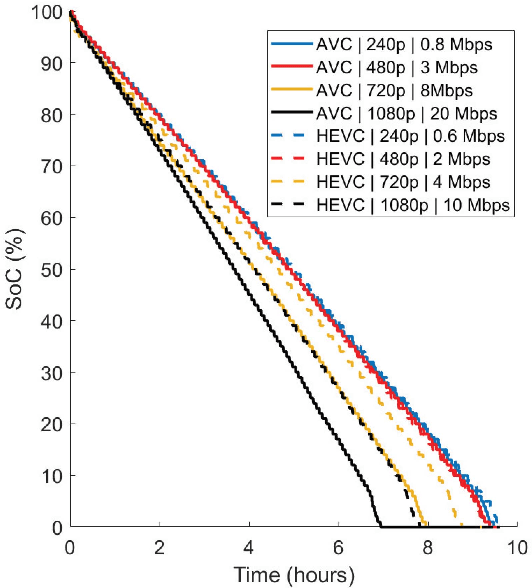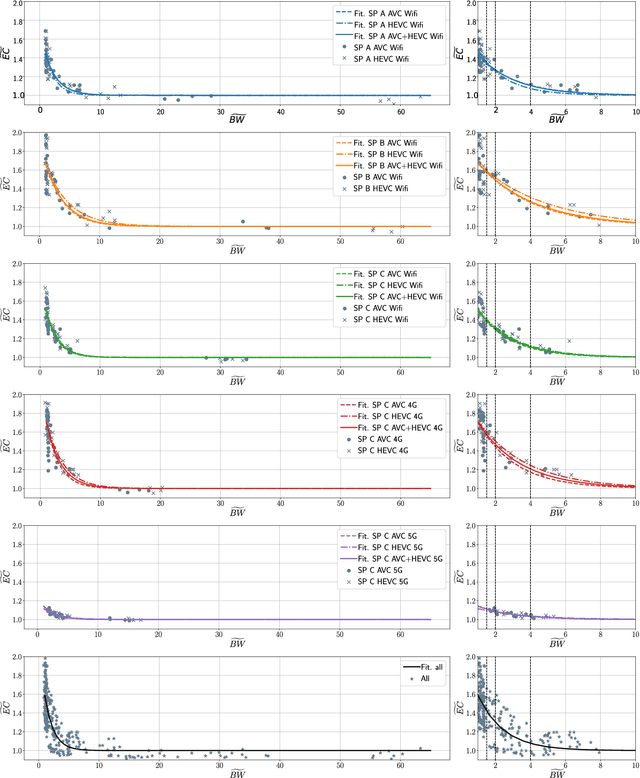Energy- and Quality-Aware Video Request Policy for Wireless Adaptive Streaming Clients
Paper and Code
Feb 08, 2024



We present a straightforward, non-intrusive adaptive bit rate streaming segment quality selection policy which aims at extending battery lifetime during playback while limiting the impact on the user's quality of experience, thus benefiting consumers of video streaming services. This policy relies on the relationship between the available channel bandwidth and the bit rate of the representations in the quality ladder. It results from the characterization of the energy consumed by smartphones when running adaptive streaming client applications for different network connections (Wifi, 4G, and 5G) and the modeling of the energy consumed as a function of said relationship. Results show that a significant amount of energy can be saved (10 to 30%) by slightly modifying the default policy at the expense of a controlled reduction of video quality.
 Add to Chrome
Add to Chrome Add to Firefox
Add to Firefox Add to Edge
Add to Edge